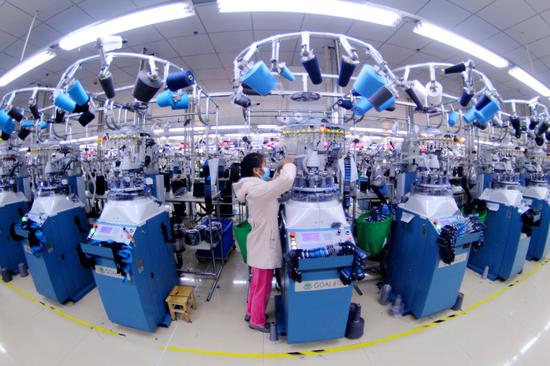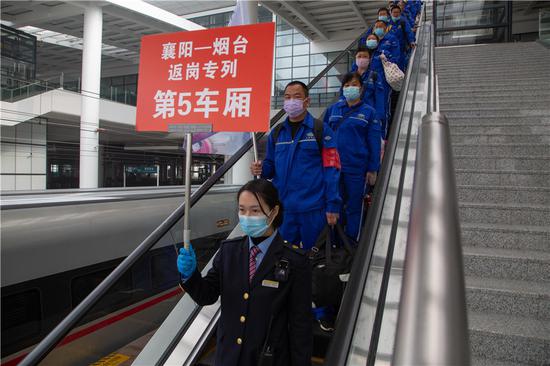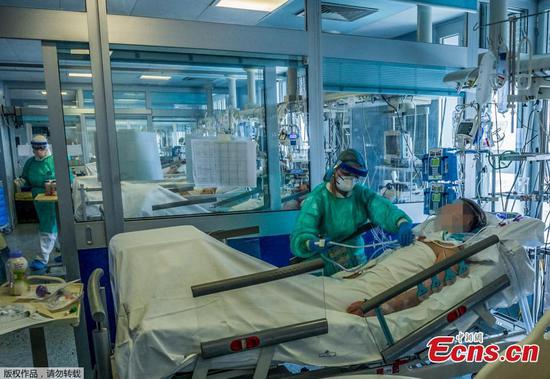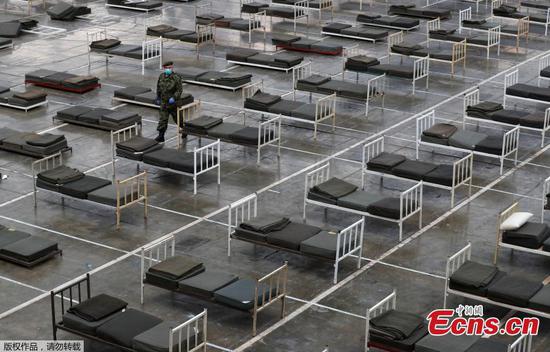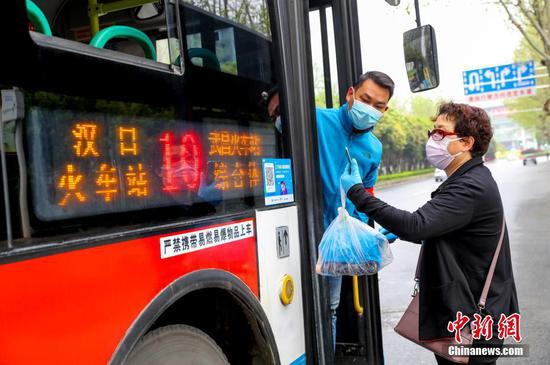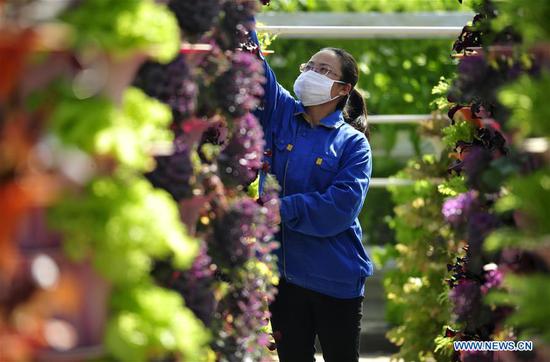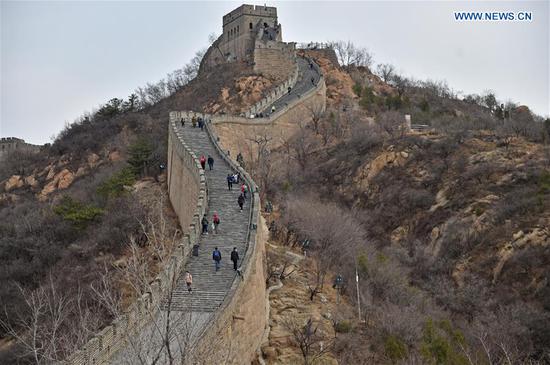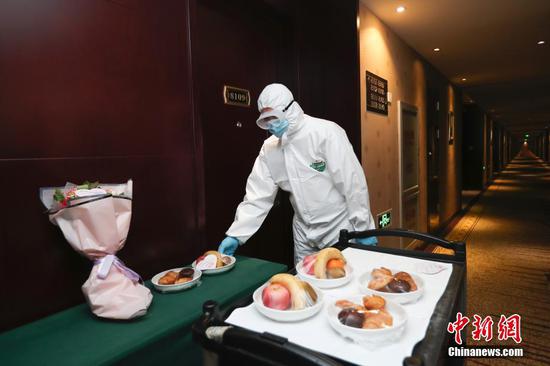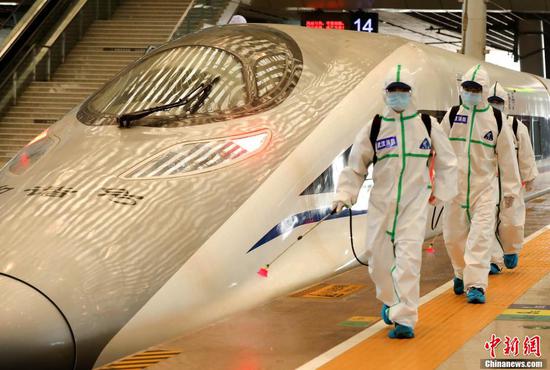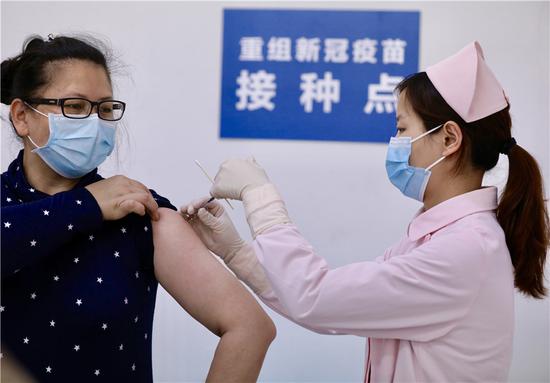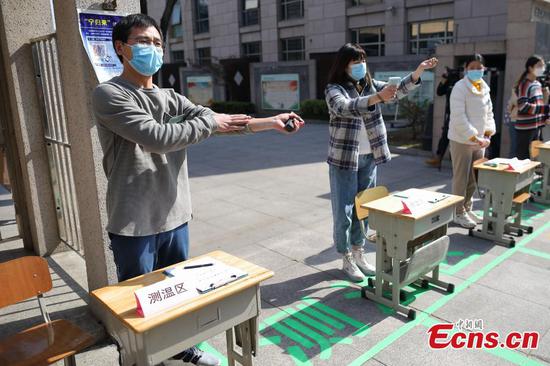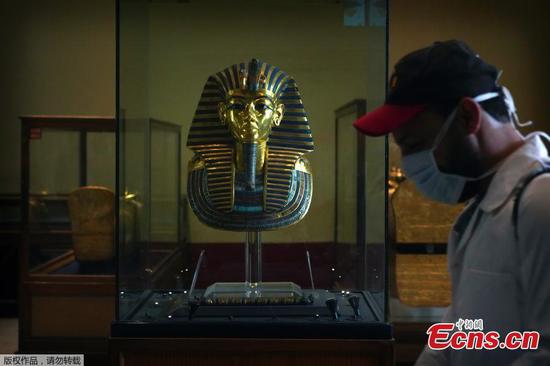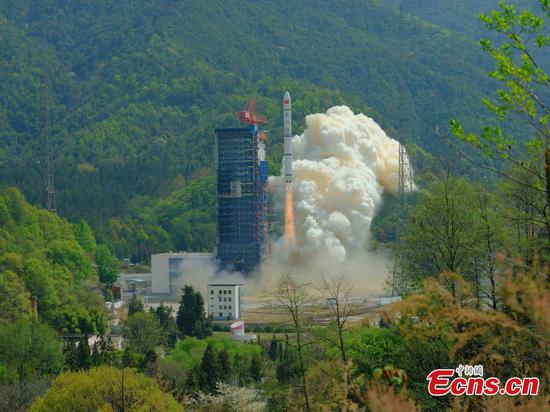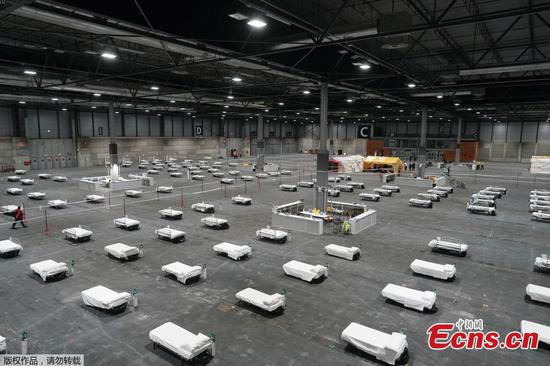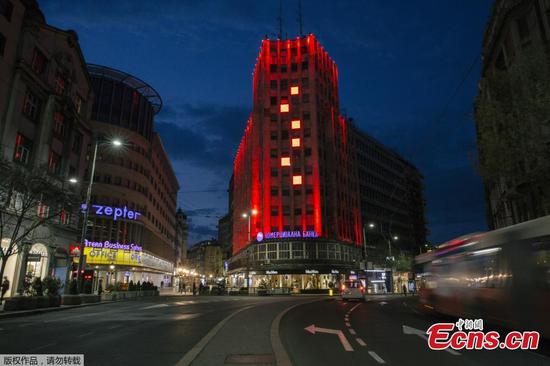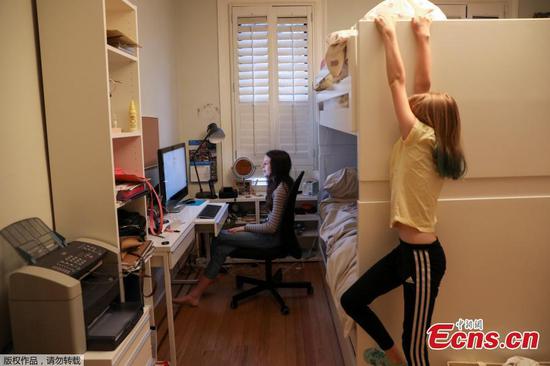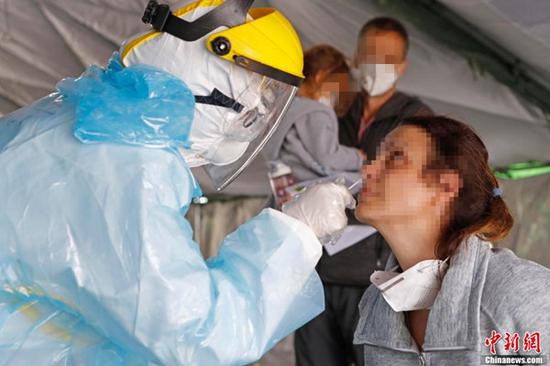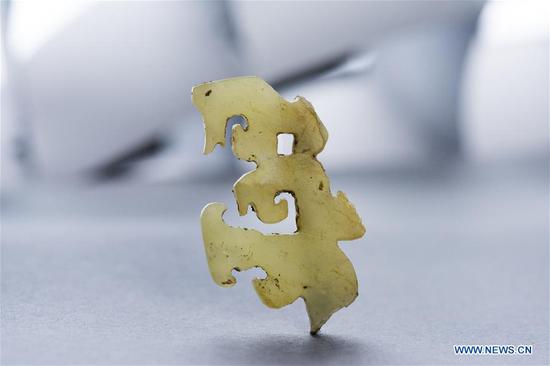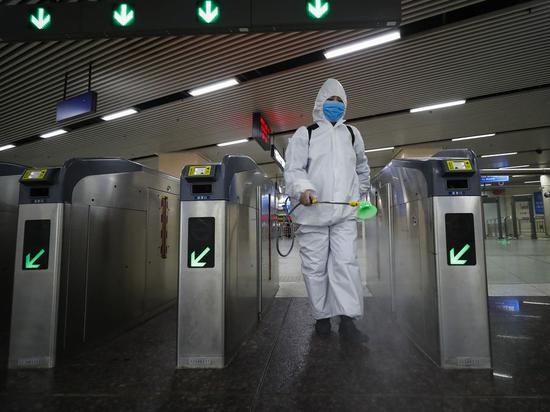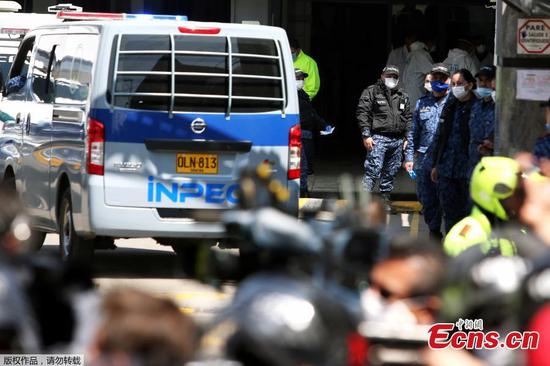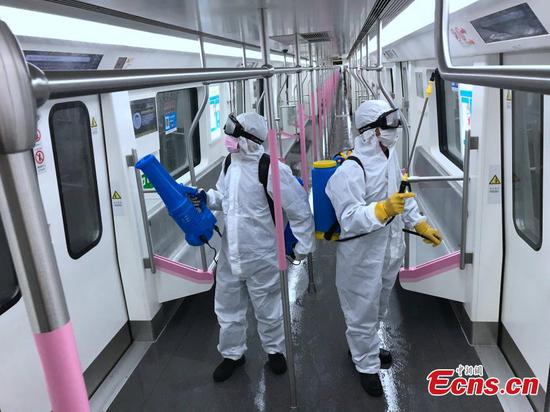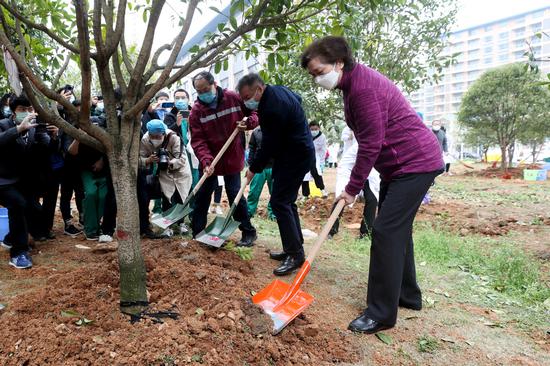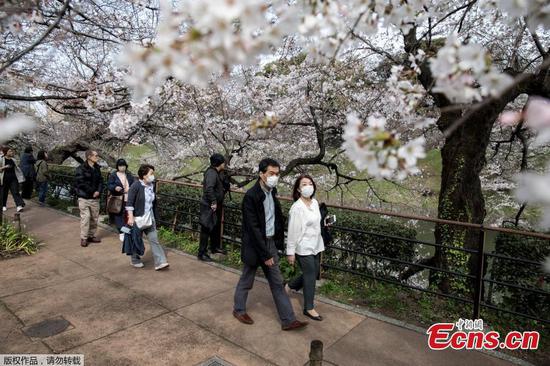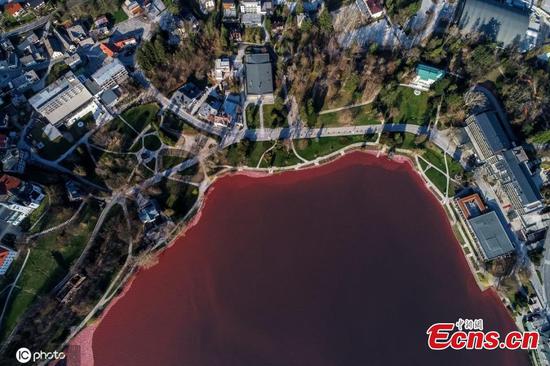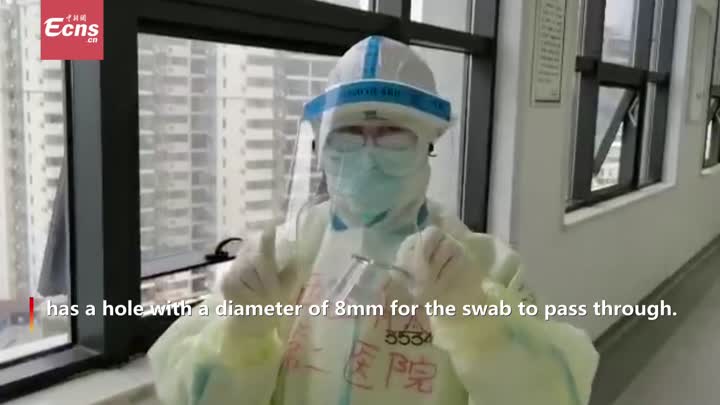The Chinese market has become a strategic highland for many foreign-invested companies in east China's Zhejiang Province, as the bulk of their foreign trade orders were usurped by the spreading coronavirus outbreak.
Zhejiang Tiner Fashion Dress Company is a Japanese-funded underwear company. As the epidemic in the province has waned, about 90 percent of its production capacity has been resumed so far.
At a corner of the factory, workers were busy packing up products while two livestreamers were introducing new items to Chinese online viewers.
"We have resumed most of our operations, and the current priority is to catch up with overdue orders," said Gu Guoli, general manager of the company. "Survival will be the buzzword for the whole year."
Like Tiner, many foreign enterprises in Zhejiang have been making every effort to resume production and deliver orders. But in the meantime, some others have chosen to "hibernate" and wait for the market to heat up.
According to the provincial bureau of commerce, almost all 17,000 foreign-invested enterprises in Zhejiang have resumed operations, except those in the city of Wenzhou, where coronavirus hit the hardest.
Gem-Year Industrial Supply Company is a leading player in screw manufacturing. The past several months have seen a huge decline in sales of its downstream products such as home appliances.
According to Yu Xiaomin, the company's deputy general manager, more than 1,000 offline stores across the country reported next to nothing in sales for February.
"The impact has been huge for us, and will continue for quite a while," he said. "We have planned to hire 50 more sales personnel to meet our sales target domestically. It will definitely be a difficult year."
A crisis, however, can also present opportunities. Some companies have quickly adjusted their product lines to meet the changing demands of the market.
Inside the factory of Nan Liu Enterprise (Pinghu) Company, the assembly line was running at its full capacity. Andy Jin, the sales director of the company, said they were currently mainly engaged in manufacturing non-woven fabrics.
The demand for disinfectant wipes, surgical gowns, masks and other materials has been surging due to the outbreak of the COVID-19.
"We didn't stop production even during the Spring Festival. We have been in full production capacity. The sales have increased 50 percent year on year over the past two months," Jin said.
For Zhejiang Liebherr Zhongche Transportation System Company, however, the spreading of the COVID-19 outbreak has caused quite a problem.
The joint venture that manufactures ventilation and air-conditioning systems has benefited from China's expanding railway construction domestically.
Lyu Yuan, the company's general manager, said some of their key materials are imported from France and Italy, where the epidemic situations are quite uncertain.
"If we use substitute materials made in China, the cost will increase by 20 percent," he said.
"The domestic market has been stabilized whereas the overseas ones are facing a lot more difficulties," said Xu Aijun, the production manager of Zhuji Huahai Spandex Company. "Our downstream companies are mostly export-oriented enterprises. The shrinking overseas market will have a negative impact on us in the next few months."
To get through the market fluctuations, Sinomax (Zhejiang) Polyurethane Technology Company answered with an investment of 20 million U.S. dollars in research and development, and a shift of its focus to the Chinese market.
Its general manager Chen Xiaohua said he hoped that the government would provide more support for foreign-owned enterprises and give priority to new infrastructures such as 5G to stimulate consumption, so as to accelerate economic recovery domestically.
Takayuki Sugimoto, president of Nidec Shibaura (Zhejiang), has been working in China for two years. He said the huge market of China and the great performance of the Chinese government during the epidemic have given confidence to foreign-invested companies.
"Confidence is more important than anything else. If we make it through, a better future is just around the corner," he said.









